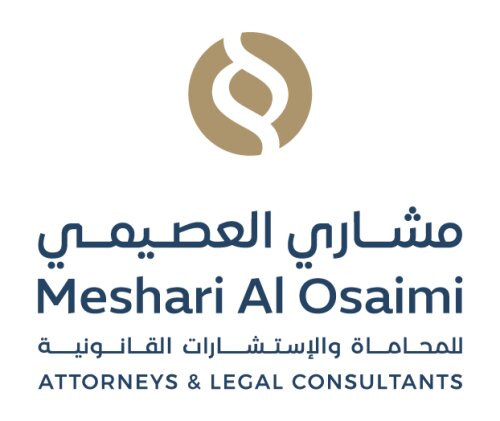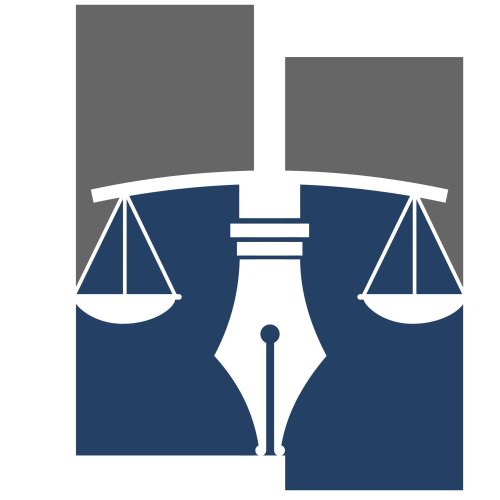Best Structured Finance Lawyers in Kuwait City
Share your needs with us, get contacted by law firms.
Free. Takes 2 min.
List of the best lawyers in Kuwait City, Kuwait
About Structured Finance Law in Kuwait City, Kuwait
Structured finance in Kuwait City refers to complex financial transactions that go beyond conventional lending or borrowing. It often involves the pooling of financial assets, the creation of securities, and the deployment of various legal and financial instruments to optimize funding, risk management, and regulatory compliance. In Kuwait, structured finance plays a critical role in large-scale infrastructure projects, real estate development, corporate financing, and government-backed initiatives. Local frameworks are influenced by Islamic finance principles, global regulatory standards, and national laws governing financial markets and investment.
Why You May Need a Lawyer
Legal issues relating to structured finance can be highly intricate due to the unique characteristics of each transaction and the broad range of stakeholders involved, such as banks, investors, corporations, and government entities. Common situations where you may require the guidance of a Kuwait-based structured finance lawyer include:
- Arranging or participating in project finance for infrastructure or construction projects
- Securitization of assets or receivables
- Drafting and reviewing complex financing or investment agreements
- Navigating the intersection of Islamic Shariah finance requirements and conventional finance
- Complying with the regulations of the Capital Markets Authority and the Central Bank of Kuwait
- Resolving disputes between stakeholders or addressing breach of contract scenarios
- Ensuring anti-money laundering (AML) and know-your-customer (KYC) compliance within financial transactions
Seeking legal assistance is vital to structure deals appropriately, identify and mitigate risks, and ensure transactions fully comply with Kuwaiti laws and regulations.
Local Laws Overview
The regulatory environment for structured finance in Kuwait City is shaped by several key legal frameworks and authorities. The most relevant laws include:
- The Capital Markets Law (Law No. 7 of 2010): Establishes the rules governing capital markets, securities offerings, and investment activities in Kuwait. It is enforced by the Capital Markets Authority (CMA), which oversees compliance and market integrity.
- The Companies Law (Law No. 1 of 2016): Sets out the rules for the formation, governance, and operation of companies, affecting how structured finance transactions are implemented.
- The Central Bank of Kuwait Regulations: Cover the regulation of banks, financial institutions, and their roles in financing and securitization scenarios.
- Islamic Finance Laws: Transactions must often adhere to Shariah principles, especially in Islamic banks and financing entities. This influences deal structures, prohibiting interest and requiring compliance with specific ethical standards.
- Bankruptcy Law (Law No. 71 of 2020): Impacts creditor rights and risk allocation in structured finance and securitization.
Transactions must often be meticulously structured to align with these local laws while achieving commercial objectives.
Frequently Asked Questions
What is structured finance?
Structured finance is a sector of finance that creates advanced financial instruments and strategies to facilitate large and complex financial transactions, such as asset securitizations, syndicated loans, and project finance arrangements.
Does structured finance in Kuwait have to comply with Shariah law?
Yes, many financial transactions in Kuwait are influenced by Islamic finance principles, particularly if they involve Islamic banks or investors. This can affect deal structure, the use of interest, and the types of assets used in financing.
Who regulates structured finance activities in Kuwait?
The Capital Markets Authority (CMA) primarily regulates securities and investment activities, while the Central Bank of Kuwait supervises banks and financial institutions. The Ministry of Commerce and Industry also plays a role in regulating company activities.
What types of assets can be securitized under Kuwaiti law?
Commonly securitized assets in Kuwait include receivables, real estate assets, and future cash flows from large projects. The asset must have legal clarity and be permissible under Kuwaiti and Islamic laws if applicable.
Is foreign investment allowed in structured finance deals in Kuwait?
Yes, Kuwait encourages foreign investment, but some restrictions may apply depending on the sector, the nature of the assets, and compliance with local and sector-specific regulations.
Are there common risks in structured finance transactions in Kuwait?
Risks include legal and regulatory compliance, credit risk, market volatility, political or economic changes, and Shariah interpretation differences. Legal advice is essential to identify and mitigate these risks.
What documents are required for a structured finance transaction?
Essential documents include term sheets, facility agreements, security documentation, due diligence reports, Shariah compliance certificates (when required), and regulatory filings with the CMA or Central Bank.
What is the typical length of time to close a structured finance transaction?
The timeframe varies depending on the transaction's complexity, ranging from a few months for straightforward securitizations to over a year for large-scale project financing deals.
What are the legal fees for structured finance transactions in Kuwait?
Legal fees depend on the complexity and size of the transaction. Most law firms in Kuwait provide fee estimates upfront after understanding the transaction details.
How can disputes in structured finance be resolved?
Disputes are commonly resolved through negotiation, mediation, or arbitration, and sometimes through the Kuwaiti courts. Contracts usually specify the mechanism for dispute resolution.
Additional Resources
For more guidance or support in structured finance matters in Kuwait City, you can consult:
- Capital Markets Authority (CMA) - Kuwait: The primary body overseeing securities and structured finance-related activities
- Central Bank of Kuwait: Regulates banks and monetary issues impacting finance structures
- Ministry of Commerce and Industry: Registers companies and enforces commercial law
- Kuwait Chamber of Commerce and Industry: Provides commercial resources and support for businesses
- Registered Law Firms Specializing in Structured Finance: Seek out firms with expertise in financial transactions and regulatory compliance
Next Steps
If you require legal assistance with a structured finance transaction in Kuwait City, here is how you can proceed:
- Compile all relevant information about your intended transaction, including business objectives, available assets, partners, and any existing contracts or financial documents.
- Identify and shortlist law firms or legal practitioners in Kuwait City with expertise in structured finance, securities law, and Islamic finance as necessary.
- Contact your chosen lawyer or law firm and schedule a consultation to discuss your needs, objectives, and legal requirements.
- Review any proposed legal strategies and clarify fee arrangements directly with your legal advisor.
- Rely on your lawyer to coordinate with other professionals as needed, such as accountants, Shariah scholars, or regulators, and to prepare the required documentation for a compliant and secure transaction.
Taking these steps will help ensure your structured finance deal in Kuwait City aligns with local law, meets commercial objectives, and effectively manages risks.
Lawzana helps you find the best lawyers and law firms in Kuwait City through a curated and pre-screened list of qualified legal professionals. Our platform offers rankings and detailed profiles of attorneys and law firms, allowing you to compare based on practice areas, including Structured Finance, experience, and client feedback.
Each profile includes a description of the firm's areas of practice, client reviews, team members and partners, year of establishment, spoken languages, office locations, contact information, social media presence, and any published articles or resources. Most firms on our platform speak English and are experienced in both local and international legal matters.
Get a quote from top-rated law firms in Kuwait City, Kuwait — quickly, securely, and without unnecessary hassle.
Disclaimer:
The information provided on this page is for general informational purposes only and does not constitute legal advice. While we strive to ensure the accuracy and relevance of the content, legal information may change over time, and interpretations of the law can vary. You should always consult with a qualified legal professional for advice specific to your situation.
We disclaim all liability for actions taken or not taken based on the content of this page. If you believe any information is incorrect or outdated, please contact us, and we will review and update it where appropriate.















